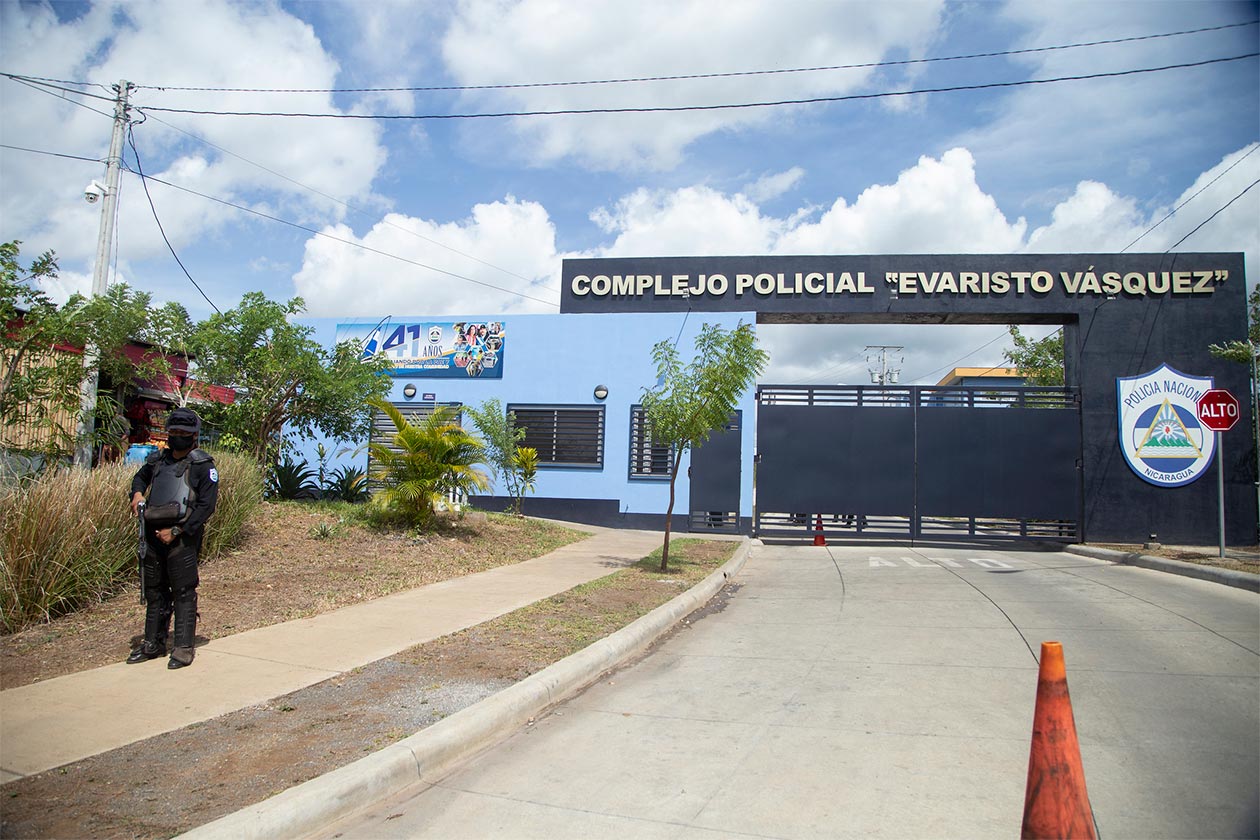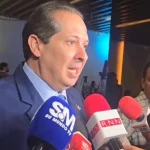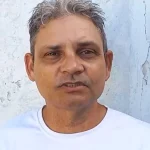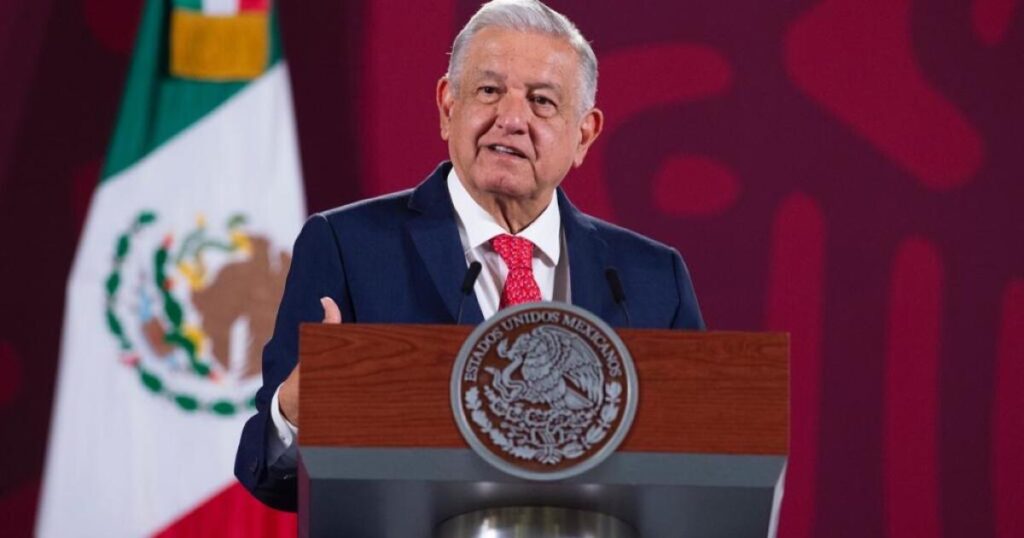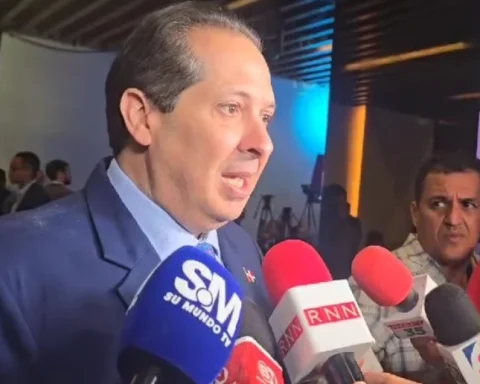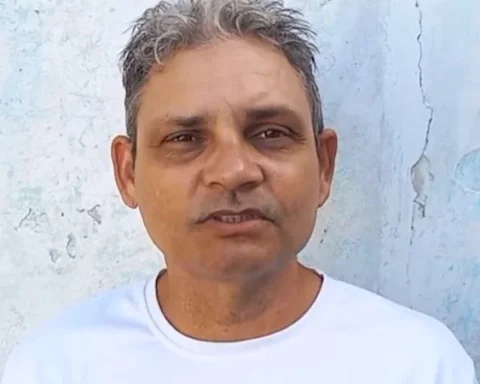Music producers Xóchitl Tapia and Salvador Espinoza left the Judicial Assistance Directorate (DAJ), El Chipote, after ten days of confinement, directly to the Augusto C. Sandino International Airport; a plane ticket in exchange for his freedom. Staying meant remaining imprisoned and accused, confirmed CONFIDENTIAL. His case sets a precedent of “de facto exile” because Nicaraguan law does not guarantee that a national be expelled from his own country, say lawyers consulted.
Tapia and Espinoza were captured along with Josué Monroy, a member of the Monroy y Surmenage band, and the music producer, Leonardo Canales, on Holy Tuesday. However, unlike the latter who had another nationality – Salvadoran and Costa Rican, respectively – and were deported to those countries, the managers of Saxo Producciones had only Nicaraguan nationality.
Espinoza’s mother, Norma Rivera, told 100% Noticias, that during the ten days that the couple was detained in the Chipote prison they remained incommunicado. “The only thing they told us was that if we could get them out of the country, if we showed a ticket showing that they were going to leave the country, they would release them, but it was from the jail to the airport,” he said. So far the details are unknown. CONFIDENTIAL reached out to the producers, but they are not providing interviews.
“The banishment is not legislated. Nicaragua is part of the International Convention on Human Rights and many international treaties that prohibit exile. What happened in this case? An exile was applied in a de facto manner, not in law, because we do not have it legislated, “explained the lawyer Yonarqui Martínez.
According to the UN Refugee Agency, banishment refers to the punishment of “expelling someone from a place or territory. Generally, it is the State that decides to expel or banish that person for having committed a crime.” Article nine of the International Convention on Human Rights prohibits a citizen from being “arbitrarily detained, imprisoned, or exiled.”
Martínez points out that in Nicaragua the figure of expulsion does exist, regulated in article 95 of the Penal Code, but it only applies to foreigners, not nationals -such as music producers-, therefore, their forced departure cannot be considered expulsion. Rather, the move of the regime, according to Martínez, shows a de facto adaptation of laws that implement authoritarian regimes such as Cuba or Venezuela, where there is no rule of law.
“The State is committing a crime that is abolished in international treaties and conventions and that Nicaragua assumed when it became a party to them. The exile, we in theory, abolish it, even in the Constitution we reject the extradition of nationals, “said the lawyer.
Nicaragua: a parallelism with Cuba
The Cuban regime dismantles dissidence through prison and forced exile. It implements it against opponents, but during the last months and after the unprecedented protests that broke out in June 2021 demanding freedom, food and medicine, it has been launched against the island’s artistic union.
Cecilia Noce, coordinator of the Project for the Defense of the Freedom of Artistic Expression of the CADAL Foundation -Center for the Opening and Development of Latin America-, in Argentina, has systematized the violations against Cuban artists and points out that the “modus operandi” in Cuba is from the jail to the airport, similar to what happened with the Nicaraguan producers.
“What Cuba is doing is disarming, dismantling the artistic movements of dissent through the exemplary prison for some and the rest, of forced exile.” In the case of those who are outside, they are not allowed to return, he explained.
On July 18, immigration authorities did not allow the Nicaraguan to enter the country. Carlos Luis Mejía Rodríguez, member and founder of the musical group La Cuneta Son Machín. During his stopover in El Salvador, on a flight from the United States, he was informed that he could not enter the national territory.
The raid against music producers and artists on the dates of the fourth anniversary of the April 2018 Rebellion, is believed to have been motivated by a 15th anniversary concert by the band Monroy and Surmenage, where criticism was raised through the songs of the regime. Ortega.
Rivera, Espinoza’s mother, told 100% Noticias that “only we knew that they were preparing these concerts that they had with the bands they work with, with all these artistic groups that they promote, that they were preparing a series of concerts for the theme of April 19 (…) that is the tool that musicians have to make the situation in Nicaragua visible or to denounce or make visible what is happening,” he said.
He added that “they have always worked with the musicians who have been making these kinds of complaints, who are demonstrating for a country in justice, for a country where impunity is not the country’s norm… the only crime they have had with their art. it is to be on a par with the people who need it”.
Both the Police and the Prosecutor’s Office remained silent about the arrests, despite the fact that the law states that a detained person must be presented before the judicial authority within a period of no more than 48 hours. For Noce it is still too early to speak of a trend or pattern similar to the one that occurs on the island against Cuban artists, but if there are “many parallels” and evidence “one more level within what is the repression of freedom of expression in Nicaragua”.
Gonzalo Carrión, a member of the Nicaraguan Never Again Human Rights Collective, agreed with Martínez that the forced displacement of the two music producers is an exile and has no legal support. “An exile that is equivalent to the dispossession of their rights because it is the State, in the maximum use of repressive force, of abuse of power, that decides to do that after having them imprisoned,” he said.
“The exile cannot be seen as a benefit because it is an imminent violation of human rights and international norms,” said Martínez. At the same time, he recalled that the producers are nationals and are not being allowed to live in their country.
The arbitrary arrests followed by exile send a message to Nicaraguan musicians, Carrión considers, but it is not exclusive to the union, but rather that anyone who dares to continue raising their voice and defending rights in the country is exposed to this type of reprisal. . “The measure is typical of a state of terror, the measure is to increase the levels of fear of that state of terror, of that police state that is already four years old,” said the defender.
